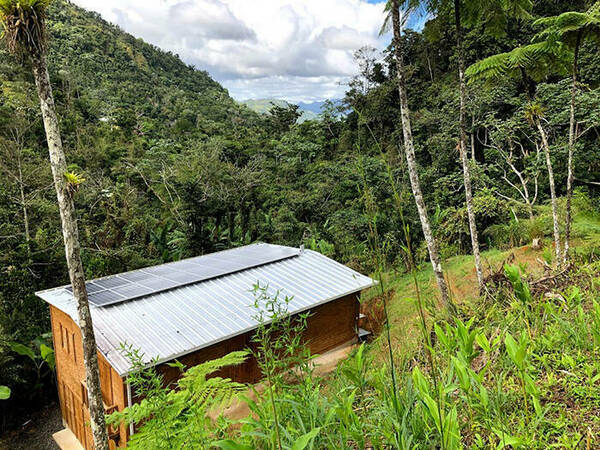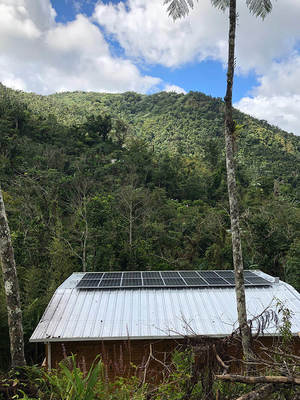

After Hurricane Maria hit Puerto Rico in 2017, the island’s energy infrastructure was destroyed. The lack of electricity in rural areas for months following the storm contributed to thousands of post-hurricane deaths. As the island rebuilds, there are calls for replacing the fossil-fuel based centralized grid with renewable microgrids, making use of abundant solar, wind, and water resources. A new 1-credit course for fall 2019, Puerto Rico: Road Map to a Renewable Future, will explore the intricacies of such a seemingly obvious solution.
This new course is part of ND Energy’s Energy Studies Minor and will consist of eight weekly classes and a fall break immersion in Puerto Rico. Undergraduate students will learn about the opportunities and challenges that exist when communities attempt to reduce their carbon footprint while considering the economic, political, historical, and ethical issues unique to Puerto Rico.
“In the aftermath of Hurricane Maria, it became clear to us that there is much to learn from this catastrophic event and possibly ways ND Energy could partner with and contribute to Puerto Rico’s renewable future,” explained Peter C. Burns, director of ND Energy, Henry Massman Professor of Civil & Environmental Engineering & Earth Sciences, and academic advisor for the Energy Studies Minor. “Toward this end, we have developed a new course that will give students a unique learning experience and help shape their future as leaders in renewable energy, while advancing our mission of creating a more sustainable energy future for all and of being a force for good in the world,” he concluded.
Prior to visiting Puerto Rico, students will meet with members of Notre Dame’s Puerto Rican diaspora, review a non-technical survey of energy options and their social and economic ramifications, and engage in discussions on how their lifestyle and choices affect the environment.
“The week on the island will be split between San Juan and the mountain town of Adjuntas,” said Burns. “The main goal of the course will be to gain insights from those caught in the struggle of rebuilding; the hard choices they must make and the complicated, sometimes rigorous path they are trying to forge.”
In Adjuntas, students will work with the staff of an award-winning community center, Casa Pueblo. This organization, led by Arturo Massol Deyá and his father Alexis Massol Gonzalez, has united much of the community around environmental stewardship. Other learning opportunities will include visits to historical and cultural sites, interactions with Puerto Rican college students, and conversations with community leaders in San Juan and Adjuntas.
When students return to campus, they will complete a final project that will share what they have learned and encourage others to make better energy choices in their lives.
All undergraduate students may enroll in this course, but students already enrolled in the Energy Studies Minor may choose this course as their capstone requirement. The Energy Studies Minor is open to undergraduate students in all majors and colleges at the University and is intended to prepare students to become successful leaders who understand the complexities of the world’s energy challenges.
This course supports the University’s Listening to Puerto Rico joint initiative with the University of Michigan and responds to Pope Francis’ Encyclical Letter, Laudato Si: On Care for our Common Home.
For more information about the minor or this new course, contact Anne Berges Pillai, education and outreach associate program director of ND Energy.
Originally published by at energy.nd.edu on August 23, 2019.